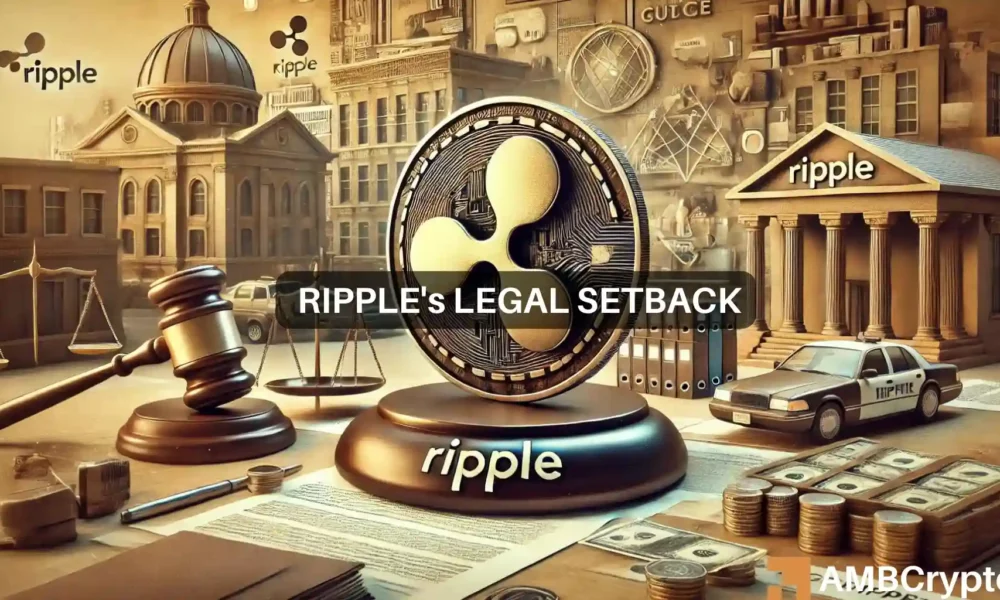Ripple
Ripple’s next battle: Lawsuit to determine XRP’s security status proceeds
Ripple CEO’s statements come under fire as judge allows lawsuit questioning XRP’s security status.

- Judge Hamilton greenlit a lawsuit, considering XRP a potential security sold to retail investors.
- Legal complexities persist despite dismissed claims.
In the midst of Ripple [XRP] Labs’ legal dispute with the SEC over XRP’s security classification, another significant court ruling has emerged.
Is XRP a security?
On 20th June, Judge Phyllis Hamilton of the U.S. District Court for the Northern District of California determined that XRP could be considered a security if sold to retail investors and allowed a lawsuit to proceed regarding statements made by Ripple CEO Brad Garlinghouse.
Notably, there were four other allegations that accused Ripple of failing to register XRP as a security, but Judge Hamilton dismissed them.
Therefore, at trial, the case will focus specifically on whether Garlinghouse’s statements constituted misleading information.
Expressing his content, Ripple’s chief legal officer, Stu Alderoty told a publication,
“We are pleased that the California court dismissed all class action claims. The one individual state law claim that survived will be dealt with at trial.”
Moreover, before delivering her final verdict to proceed with the trial, Judge Phyllis Hamilton rejected Ripple Labs’ request for summary judgment, a legal motion seeking a court ruling in its favor without a full trial.
Instead, she greenlit the civil securities lawsuit against Ripple Labs.
What happened back in 2017?
For context, the statement made by Ripple CEO Brad Garlinghouse back in 2017 in conversations with Canada’s BNN Bloomberg were,
“I’m long XRP, I’m very, very long XRP as a percentage of my personal balance sheet.”
However, the lawsuit contends this was untrue, claiming he sold millions of XRP during that period.
It should be noted that a previous ruling by Judge Analisa Torres concluded that XRP is a security under the Howey test, particularly when sold to institutional investors.
However, Hamilton stated that a rational non-institutional investor will also expect profits from Ripple’s efforts when buying XRP, and thus it meets the Howey test criteria for being considered a security.
Thus, the lawsuit alleging Brad Garlinghouse gave misleading statements about XRP’s status can proceed.
Ergo, the differing judicial interpretations underscore the complex legal landscape for cryptocurrencies. Despite initial optimism after Torres’ ruling, the unpredictable nature of regulatory decisions in this evolving field remains evident.
XRP’s price action
Amidst ongoing legal disputes involving Ripple, XRP is trading at $0.4912 after a 1.74% drop in the past 24 hours.
AMBCrypto’s analysis of Santiment data further suggests a sharp rise in social volume, which had recently dropped drastically at press time.
However, social dominance was moving upward, hinting at potential positive developments for XRP in the coming days.

